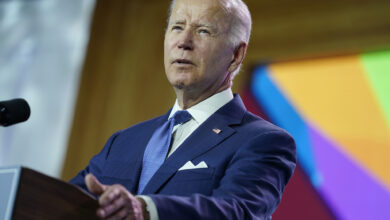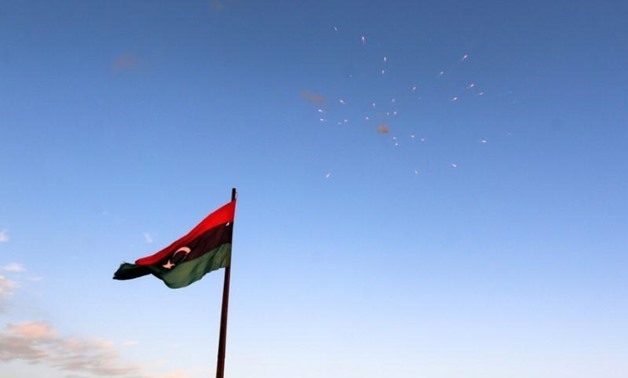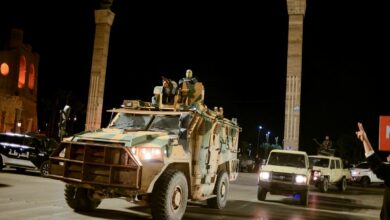The headlines of Tuesday’s papers indicate that Egypt is trapped in a whirlwind of political confusion over the first post-revolution draft constitution.
While the 100-member Constituent Assembly is putting the final touches to the country’s new draft constitution, that would hopefully pave the way for political pluralism and social justice, disputes between political powers have heated up regarding several articles.
On its front-page, state-owned Al-Ahram quotes Mohamed Mahsoub Abdel Meguid, parliamentary affairs minister and head of the assembly’s Drafting Committee, as saying that the first draft of the constitution was sent to law and economy professors as well as judiciary authorities for review and suggestions on the constitutional articles.
On a two-page spread, the independent daily Youm7 provides exclusive extensive coverage on the same topic, listing all the proposed articles that would supposedly see the light after being submitted to a national referendum.
Some controversial constitutional articles are highlighted with headlines at the top of pages seven and eight on Youm7: “The president is not allowed to hold any partisan office during [their] presidential term,” “Al-Azhar scholars’ opinions would be taken on Islamic Sharia,” and “Sovereignty for the people, to practice, protect and preserve national unity.”
The lion’s share of controversy, however, has come from Article 2, which states that “Islam is the official religion of the Egyptian state and the principles of Islamic Sharia are the main source of legislation.”
Privately-owned daily Al-Watan states that the Salafi movement has threatened popular mobilization on the grounds the drafted constitution fails to guarantee that Islamic law would not be violated.
Hard-line conservative Salafis say that the word ‘principles” mentioned in the second article does not provide a clear interpretation that Islamic Sharia would be implemented in the future. Consequently, they demand the use of the word “provisions” as a substitute to guarantee the enforcement of Sharia.
Mahmoud Abdel Hamid, a key member of the Salafi movement, has accused the Muslim Brotherhood of going back on their agreement over the full application of Islamic jurisprudence in the new constitution, the paper says.
The story stops at Abdel Hamid’s statements, but fails to show the response of the Brotherhood members from this allegation, which is contained in the state-owned Al-Ahram’s coverage of the same story.
The report quotes Mahmoud Ghazlan, spokesperson of the Brotherhood and a member of the Constituent Assembly, dismissing this “groundless,” as he considers it, accusation, saying that there was a signed agreement between all political forces in the last meeting of the drafting assembly on adding an interpretation of Article 2, with no need to introduce any amendments to the article itself.
As a part of its fierce campaign against the Brotherhood, the independent daily Al-Dostour features a report on how the Islamic group is shaping a “totalitarian state with religious mask.” The paper quotes a number of politicians who categorically refuse the first draft of the constitution for allegedly stripping citizens of their rights as well as reinforcing the Islamists’ monopolization of authority.
Predictably, none of these issues are mentioned in Freedom and Justice daily paper, the mouthpiece of the Brotherhood’s political arm, which rather allocates an entire page for a brighter picture of the proposed constitution.
Besides the hot debatable constitutional topics, protests against the performance of Prime Minister Hesham Qandil’s Cabinet also manage to find a space on the front pages of today’s papers.
Al-Wafd, the daily paper published by the party of the same name, reports that dozens of Cabinet employees staged a demonstration in front of the building on Monday, while some tried to storm Qandil’s office in a last-ditch attempt to voice their demands.
Protesters reportedly chanted against some allegedly corrupt senior employees including the cabinet’s secretary general, and chancellors calling for their dismissal. They also carried banners bearing other demands such as better working conditions and salary increases, the paper says.
Reporting on the same news, state-run Al-Akhbar adds some substantial information to the story, stating that clashes were erupted between protesters and the security apparatus. However, Qandil quickly tried to absorb the escalating anger by pledging to consider the employees’ demands and praying with them in the Cabinet’s garden.
Egypt’s papers:
Al-Ahram: Daily, state-run, largest distribution in Egypt
Al-Akhbar: Daily, state-run, second to Al-Ahram in institutional size
Al-Gomhurriya: Daily, state-run
Rose al-Youssef: Daily, state-run
Al-Dostour: Daily, privately owned
Al-Shorouk: Daily, privately owned
Al-Watan: Daily, privately owned
Al-Wafd: Daily, published by the liberal Wafd Party
Youm7: Daily, privately owned
Al-Tahrir: Daily, privately owned
Freedom and Justice: Daily, published by the Muslim Brotherhood's Freedom and Justice Party
Sawt al-Umma: Weekly, privately owned
Al-Arabi: Weekly, published by the Nasserist Party
Al-Nour: Official paper of the Salafi Nour Party




